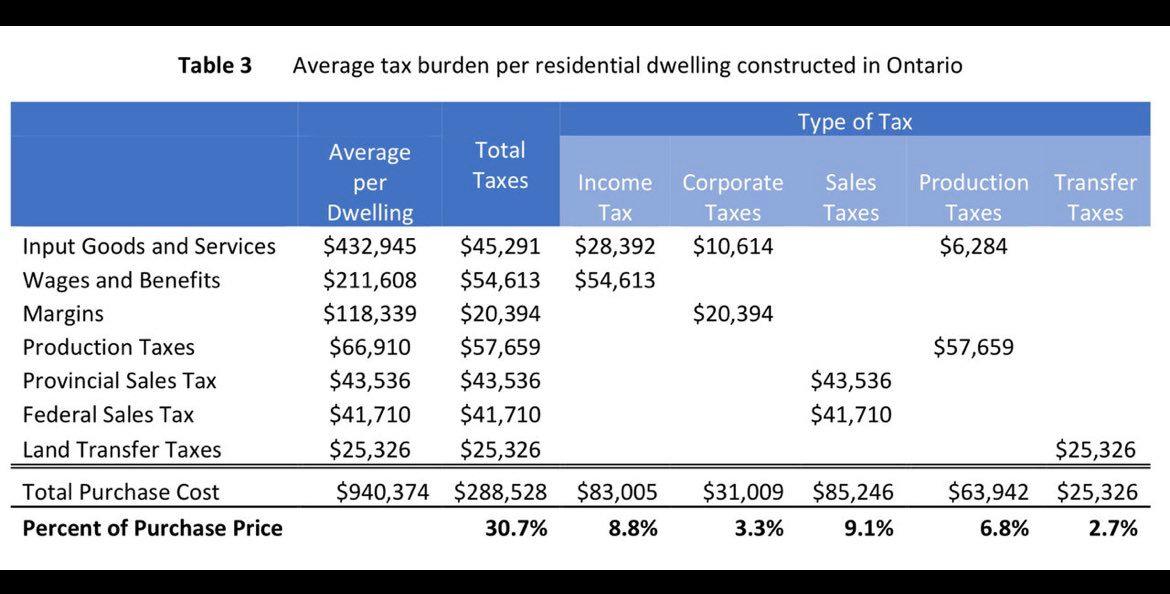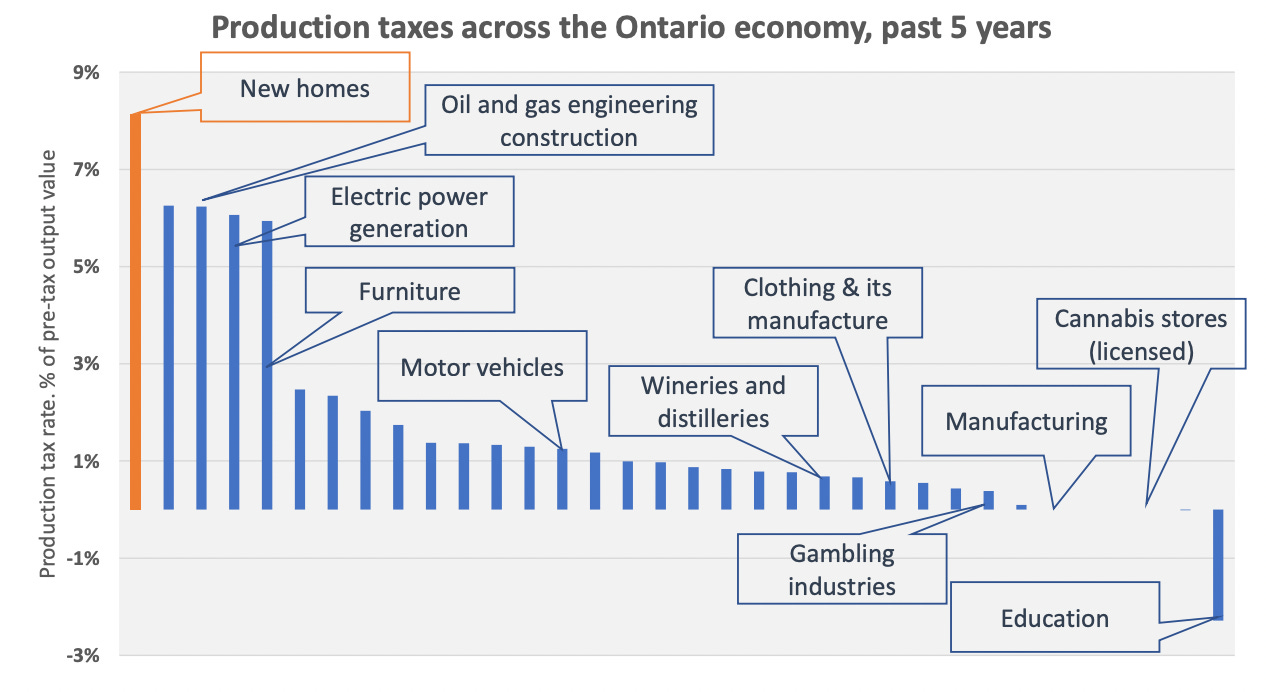Happy Monday Morning!
We’ve talked a lot about the recent mismatch between population growth in this country and the ability to deliver enough new housing supply to not only meet demand but actually moderate price growth. Housing is all about supply and demand after all. We’ve tried to obliterate demand but it seemingly won’t go away. Here’s a short list of demand side policies in no particular order in recent years:
Foreign buyer tax
Mortgage Stress Test
BC Speculation Tax
Empty Homes Tax (Vancouver & Toronto)
Rent Controls (Vancouver & Toronto)
Expanded Mortgage Stress Test
Increased Foreign Buyer Tax
Outright Foreign Buyer Ban
400bps increase in interest rates in 12 months
Underused Housing Tax
Every level of government has tried to slow demand with little results. Yes some of these policies lack real teeth, and yes we did kill the high-end luxury market. The luxury market remains on life support when we told foreigners to stop sending their money over here. So while we have eliminated the foreign owned pied-à-terre, we have not actually made housing more affordable for the average Canadian, it’s actually gotten worse!
It seems obvious we must now seriously look at the supply side of the equation. If it feels like i’ve been beating a dead horse in recent months I apologize. But please consider the following.
CMHC just dropped its latest housing market outlook suggesting housing starts are on pace to total around 212,000 units in 2023 and approximately 224,000 next year, significantly lower than a pace of about 271,000 units in 2021. The projection also marks a notable downgrade in CMHC’s expectations for home construction this year, with the agency having indicated in its fall outlook last October that it expected around 244,000 housing starts in 2023.
Yes housing starts are rolling over hard, as one would expect given a near DOUBLING in the cost of financing new construction. Furthermore, how do we entice new construction in a deteriorating macro economic outlook?
Reducing development charges, speeding up approvals, and or increasing density would be one way. However, in many cases policy makers are actually doing the opposite.
Remember, last week I told you CMHC announced a 100-200% increase in their development fees on their rental construction financing program.
This week, Metro Vancouver board of directors have approved a motion to re-work its budget to ease the rising property tax burden on residents – and instead will raise development fees on new housing construction instead.
Meanwhile, in Ontario the taxing of new homes has gotten so out of control it now accounts for about 30% of the cost of a new home! Here’s an example from The Canadian Centre for Economic Analysis which shows that if a new home in Ontario costs $940,000, then 288,000 of it is taxes. Insane.
Common sense suggests if you want more of something you incentivize it through lower taxes, and if you want less of something (hint: foreign buyers) you tax it. Yet in Ontario new homes are the most taxed sector in the economy.
So long as we continue to tax housing like cigarettes we should not expect much to change. Hopefully we figure this out soon or this housing crisis will persist, leaving most of society worse off.





An alien observer of Canadian Housing Policy tactics would have to conclude that the Govt. aims to squeeze more people into higher density, increasingly expensive housing.
Any competent person knows it is not efficient to encourage X by punishing Y.
Do you want to have more homes built?
Or do you want to have more homes NOT bought by certain classes of people?
What is simpler than your idea to incentivize BUILDING homes to have more places for people to live?
Your thesis in today's article makes sense... but it not the politicians' favorite tactics of
- blame others for the problems
- find a way to appear to be doing something by taxing and spending
Is Canada the only country that ever had an insufficient housing situation?
Has no country actually come up with ways to reduce their problem?
The questions are rhetorical because the answers are obvious.
The Republic of Panama, for example, wanted to increase the number of homes built so they ELIMINATED the RE TAXES on new homes for a period of 20 YEARS, about 20 years ago!
Because they were serious.
People needed nice homes and people needed well-paying jobs.
Expanding the housing stock satisfied both goals.
Once their program increased the housing stock they reduced the TAX EXONERATION to 10 years and then 5 years and then phased out the program.
Panama wanted lower middle income families to own their own homes, so they did not make it HARDER to qualify for mortgages.
They MADE IT EASIER by supplying long-term financing at a subsidized interest rate for those who qualified. A year ago, Canada could have borrowed 25yr money at under 4% and provided longterm mortgages to those who qualified for help to buy a home. The Banks might not have been happy, but is the country run for the benefit for the Banks?
Just saying....
While there are structural/jurisdictional differences between different Governments... the basic question to ask is how other countries successfully solved similar problems and how their successes can be adapted to Canada.
It would be refreshing to find solutions to problems that have a track record of working, especially if they used incentives, instead of taxation.
The reality is that what is considered BETTER Housing Policy depends on who you are.
Are you a Bank, selling Real Estate, a homeowner with the majority of wealth in your home, someone who wants to own a home but can't afford one?
The best Housing Policy differs depending on who the policy is supposed to "help", and that is a contentious issue, in reality, although not usually to be discussed honestly.
An honorable and competent set of Govt. institutions would have put the immediate cause for the worsening of the problem, hyperimmigration, on "hold" until there was an effective way to solve the significant problems with shortages in housing and services.
Excellent post, as always Steve! I very much apprepriate the work you do. The housing situation is not just a crisis, but a true 'emergency' as Benjamin Tal said. It's getting worse by the day and will eventually lead to social problems and hamper the Canadian economy.